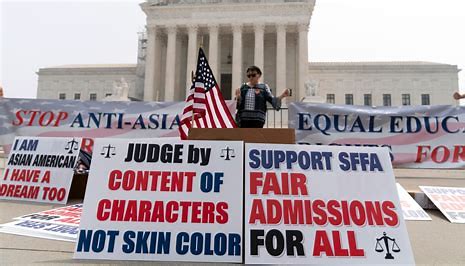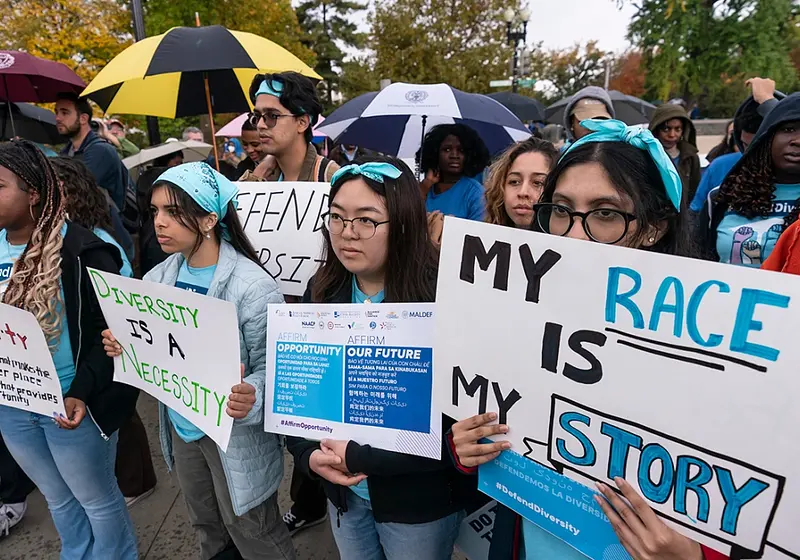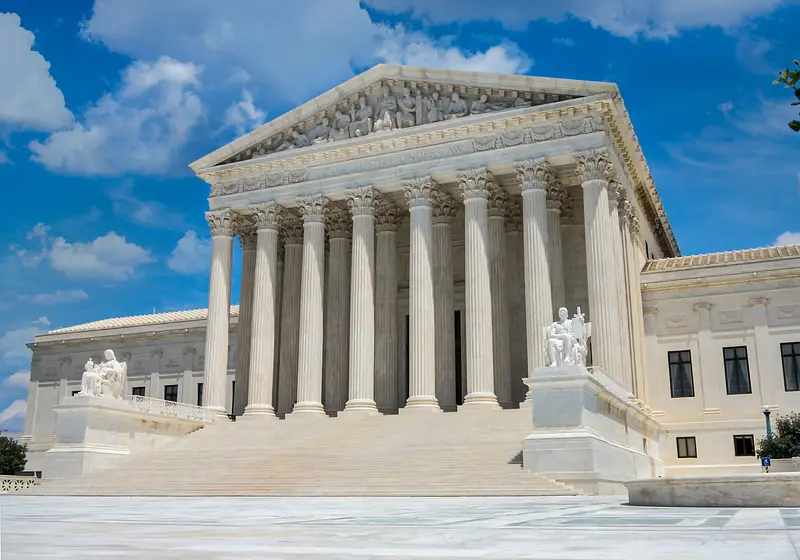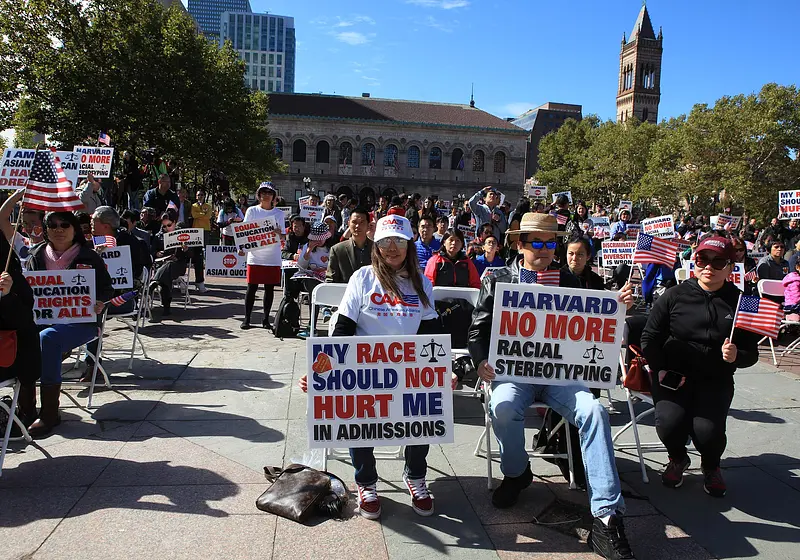Yes, the news bomb that recently hit high schoolers across the nation—even the world— is the new ruling that abolished affirmative action in college admissions. Now there are mixed opinions on how exactly it will impact the whole future statistics for application, but most voices agree that by taking out the racial factor in admissions, the whole system is made more equal. However, looking back on the heated debate the Justices had on the supreme court, I can’t help but notice something’s missing.
To tell the truth, I feel like “AA” might as well stand for “Asian absence” in this case than “affirmative action.”

The Asian community, the primary advocates for a more equal application system from the very start, curiously faded from the debate in the end. In Justice Jackson’s twenty-nine-page dissent, the word “Asian” was almost nowhere to be found. In the tiny places where it does surface, it’s either in a footnote or sentences like this: “a higher number of the most academically excellent in-state Black candidates . . . were denied admission than similarly qualified White and Asian American applicants.” In other words, the main role Asians play in any part of this ruling is one of the contributors to educational monopoly.
The duty of the supreme court is, to a large extent, reflect the arguments of the public on matters. So maybe it would be nice for more people to understand why the Asian community is so keen on promoting admissions equality.
In the New York Times article Ruling Raises Uncertainty for High School Students Heading to College, a school counselor reports feeling worried that students would feel conflicted when choosing to write “a story about race, or about all the other things that make them a quality applicant” in their essays. While that may remain true for many applicants from multiple ethnicities, Asian students struggle with another problem. I’ve seen many seniors around me trying to appear as less Asian as possible for fear of falling into “nerdy Asian” stereotypes.
This could include not revealing that you play chess or that you have a tiger parent. For Asian students, ethnicity usually isn’t what you’d willingly put in essays, but rather something to conceal.
According to the book by two professors from Princeton University “No Longer Separate, Not Yet Equal,” it’s revealed that during admissions, when students’ SAT scores are judged, 310 points would be added for black applicants and 140 points taken off for Asian ones. This means an Asian applicant would have to score 450 points higher than an African American applicant to be judged on the same grounds. The dichotomy of standards between applicants doesn’t just show with grades and scores. I remember a classmate asking our chemistry teacher whether three quality scientific research experiences were enough to get into an Ivy League (I go to an all-Asian school in China), our teacher just shrugged: “Sure, if you were from any other race.”

Kibble from Legal Insurrection
These little details are what drove so many Asians to keep rooting against affirmative action.
The point “racism still exists” is echoed by several Justices multiple times during the debate. Apparently, as defendant colleges put it, the ruling is a lethal blow on their effort to create a diverse campus. Well, how diverse was their campus before the ruling?
Is affirmative action really doing its job to create a more equal application pool? According to Harvard’s very own study, almost 30% of freshmen each year are ALDC: Athletes, Legacies, Children of Faculty or Staff, Dean’s Interest List (basically meaning either they play some sport, or someone from their family or social circle has got some tough Harvard background.) But in fact, ALDC students only take up 5% of the whole application pool. As Matthew Wilson reflected in the New York Times article, “the vast majority of students on his campus share the same socioeconomic background and ideological leanings.” Diversity isn’t just about mixing everybody’s skin color, or else race will be the only thing diverse on campus. Nowadays the more prominent differences regard economic pressure, parent marital status, ideological beliefs, etc. “Affirmative action has failed to to create a true mix of backgrounds and ideas.”

Arcidiacono et al. 2019
Now that affirmative action is a thing of the past, would the cake get bigger for applicants? I’d reply in the affirmative.

















